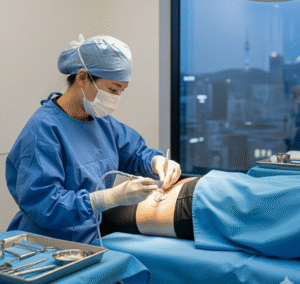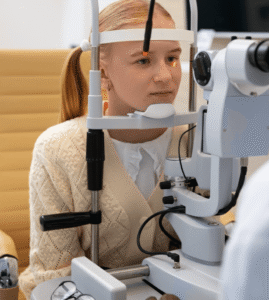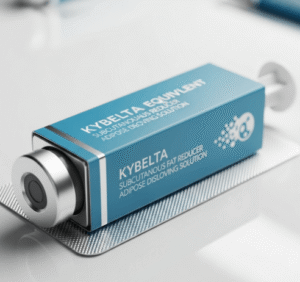Overview
Neck dissection is a surgical procedure performed to remove lymph nodes and surrounding tissue in the neck to treat or prevent the spread of cancer. It is most commonly done in patients with head and neck cancers (mouth, throat, thyroid, or larynx). By removing lymph nodes that may contain cancer cells, doctors can stop the spread of disease and improve survival outcomes.
In Korea, neck dissection procedures are performed in advanced cancer centers using minimally invasive methods, state-of-the-art equipment, and specialized rehabilitation programs.
What is Neck Dissection?
A neck dissection is a surgical removal of lymph nodes to control or prevent the spread of cancer. Depending on the extent of disease, surgeons may remove some or all lymph nodes, as well as nearby structures if needed.
Types of Neck Dissection:
✔ Radical Neck Dissection – Removes all lymph nodes on one side of the neck plus muscle, vein, and nerve.
➤ Modified Radical Neck Dissection – Removes lymph nodes but preserves one or more important structures.
➔ Selective Neck Dissection – Removes only specific lymph node groups.
★ Extended Neck Dissection – Removes lymph nodes plus additional tissues beyond standard areas.
What are the Benefits?
Neck dissection offers several key advantages in the treatment of head and neck cancers:
● Prevents cancer spread to other body parts.
✔ Improves long-term survival and treatment success.
➤ Accurate cancer staging through analysis of removed lymph nodes.
➔ Reduces recurrence risk by eliminating hidden cancer cells.
★ Combines with reconstructive surgery to maintain function and appearance.
Procedure Details
1) How should I prepare for Neck Dissection?
Before surgery, preparation is essential:
✔ Medical evaluation: CT, MRI, or PET scans are used to assess cancer spread.
➔ Blood & organ function tests: Ensure your body is ready for anesthesia.
● Medication review: Stop blood-thinning drugs if instructed.
★ Lifestyle changes: Quit smoking and alcohol to improve healing.
➤ Fasting: Usually no food or drink for 6–8 hours before surgery.
✔ Counseling: Surgeons explain risks, benefits, and recovery expectations.
2) What happens during the procedure Neck Dissection?
The operation is performed under general anesthesia and may take several hours:
✔ Incision: A carefully planned cut is made in the neck.
➔ Removal: Lymph nodes (and sometimes muscle, vein, or nerve) are taken out.
● Tissue preservation: Whenever possible, surgeons preserve important structures.
➤ Reconstruction (if needed): May include techniques to restore function and appearance.
★ Closure: The incision is stitched, and drainage tubes may be placed.
3) What happens after a Neck Dissection?
Recovery begins immediately after surgery:
✔ Hospital stay: Around 5–7 days depending on complexity.
➔ Drain care: Tubes removed once fluid decreases.
● Pain management: Medications provided for comfort.
★ Therapies: Speech or swallowing therapy may be needed.
➤ Scar care: Korean hospitals often use cosmetic sutures for better healing.
✔ Follow-up treatment: Radiation or chemotherapy may be added.
Risks / Benefits
Possible Risks:
➤ Bleeding or infection at the surgical site
✔ Shoulder weakness if a nerve is removed
● Numbness in neck, ear, or shoulder
➔ Difficulty swallowing or speaking
★ Scarring or swelling due to fluid buildup
Key Benefits:
✔ Stops cancer spread
➤ Improves survival chances
● Helps doctors stage cancer accurately
★ Can restore quality of life with rehab and reconstruction
Recovery and Outlook
Recovery depends on the type of neck dissection performed:
✔ Initial recovery: 1–2 weeks for basic healing.
➔ Full recovery: Several months, especially if radiation/chemo is added.
● Physical therapy: Helps restore neck and shoulder movement.
★ Speech and nutrition support: Provided if swallowing or speaking is affected.
➤ Outlook: With proper treatment, patients often achieve good long-term control of cancer.
When To Call the Doctor
Seek urgent medical help if you notice:
✔ Fever, redness, or pus at the incision site
➤ Severe swelling or pain not controlled by medication
● Difficulty breathing or swallowing
★ Persistent bleeding from the wound
➔ Tube blockage or dislodgement
Best Korea Option / Process
Korea is a global leader in head and neck cancer surgery. Patients benefit from:
✔ Multidisciplinary care teams (oncologists, surgeons, radiologists, therapists).
➔ Advanced techniques like nerve-sparing and robot-assisted surgery.
● Top hospitals: Seoul National University Hospital, Asan Medical Center, Severance Hospital, Samsung Medical Center.
★ Rehabilitation support: Speech therapy, physiotherapy, scar management.
➤ Medical tourism support: Translation, accommodation, and aftercare services.
Korean surgeons prioritize not only life-saving treatment but also preserving quality of life, including speech, swallowing, and appearance.
✅ Highlights:
✔ Removes lymph nodes to stop cancer spread
➤ Different types available – selective, modified, radical
● Performed under general anesthesia by expert surgeons
★ Risks include infection, weakness, and scarring
➔ Korea offers world-class options with advanced rehab programs













